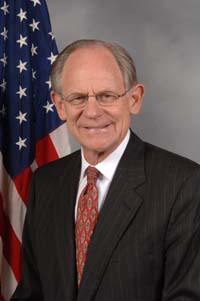Striking the right, but difficult and delicate balance (The News Journal)
Washington
-
Our View
President Obama’s reversal of his predecessor’s stem cell policy on Tuesday also served as a revocation of an unspoken government sanction to allow politics to influence the outcome of scientific inquiry.
By undoing the 2001 directive that banned federal funding for research into stem lines created after Aug. 9, 2001, President Obama delighted a frustrated scientific community that complained bitterly that their work was scrutinized for idealogical conformity.
It is hoped that the true winner of this significant decision will be medical science, specifically the finding of cures for some of the most wrenching illnesses and diseases.
“Rather than furthering discovery, our government has forced what I believe is a false choice between sound science and moral values,” President Obama said. “In this case, I believe the two are not inconsistent. As a person of faith, I believe we are called to care for each other and work to ease human suffering.”
Delaware Congressman Michael N. Castle went out on a political limb in leading bipartisan support for overturning this ban, much to the chagrin of some of his party members.
Along with Democrat Diana DeGette of Colorado, Mr. Castle attempted to tone down the emotional rhetoric and focus the federal role on fact-based research.
“Today’s executive order removes a critical roadblock, but we must not allow this momentum to fade. ... Congress now must codify the directive to prevent science from being subject to the whim of politics. Strong leadership at the [National Institutes of Health] remains vitally important for promoting basic science.” Mr. Castle was on hand in the Oval Office for signing of the executive order.
But Mr. Castle is aware that much work remains to build a “bipartisan, bicameral consensus for finally signing into law complementary legislation.”
That is because both sides of this debate have too frequently resorted to extremist positions.
For those who oppose abortion and label themselves “pro-life,” the president’s rational narrowly applies morality to issues of human misery, but not to the process of emerging life.
Political and religious conservatives offer up images of the creation of embryos solely for the purpose of selling them for profits or human cloning. In fact the legislation as the president says, has strict oversight and bans both uses.
This side also points to the potential found in the use of amniotic fluid as a hopeful sign that one day a compromise could be brokered between opponents and proponents of research over the use of stem cells from discarded embryos. But scientists during this groundbreaking work say results are far off and support the lifting of the Bush ban.
Mr. Obama stopped short of challenging another related ban – Congress’s Dickey-Wicker amendment that first became law in 1996, and has been renewed every year since.
It specifically bans the use of tax dollars to create human embryos – a practice that is routine in private fertility clinics – or for research in which embryos are destroyed, discarded or knowingly subjected to risk of injury.
At the same time, while enormous possibilities exist, research will lead to cures to some of the most savage medical problems. Supporters often oversell the promises as immenient, tricking some people into believing that cures for diseases like Alzheimer’s and Parkinson’s and some cancers will soon follow the opening up of funding and research.
That’s not true. Medical science can be an excruciatingly long process with spurts of small successes over decades, and leading more often than not to frustration and failure.
Yet this “extreme possibility” is a worthy pursuit from embryos that were created for other reasons and are destined for destruction anyway.
Upholding this possibility makes the president’s decision to overturn the existing ban a truly difficult, historically delicate choice, yet one that sets the “right moral and political” balance.


